The track is cold, can the AI Agent in the vertical field break the deadlock?

Reprinted from panewslab
02/18/2025·2MOriginal title: Vertical Agents: The Crypto-Native Agent Use Cases
Original author: Defi 0x Jeff, person in charge of steak studio
Original translation: Ashley, BlockBeats
Editor's note: This article discusses the application of AI Agent in Web2 and Web3. Web2 has widely adopted AI Agent to improve efficiency, covering sales, marketing and other fields. Web3 has opened up new application scenarios by combining blockchain technology, especially in the fields of DeFi and decentralization. Web3 Agent has the potential to surpass Web2 Agent through token incentives, decentralized platforms and on-chain data. The author points out that although Web3 faces challenges in the short term, its unique advantages make it expected to compete with Web2 in the medium and long term and redefine the industry landscape.
The following is the original content (to facilitate reading comprehension, the original content has been compiled):
When we look at general application scenarios outside of Web3, many companies, from large companies to small companies, have begun to integrate AI Agent into their daily operations—sales, marketing, finance, law, IT, project management, logistics, customer service , Workflow automation - almost all imaginable areas.
We have transitioned from manually processing numbers, performing repetitive tasks, filling out Excel forms to an autonomous, online digital worker (AI Agent). These agents are not only more efficient, but also significantly lower in cost.
Web2 companies are willing to pay $50,000 to $200,000 or more for AI-powered sales and marketing agents. Many Agent providers operate highly profitable businesses through a SaaS subscription model or a consumption-based model (fee by token usage).
Web2 AI Agent Application Scenario
Apten_AI
AI + SMS Agent, facilitating the sales/marketing process.
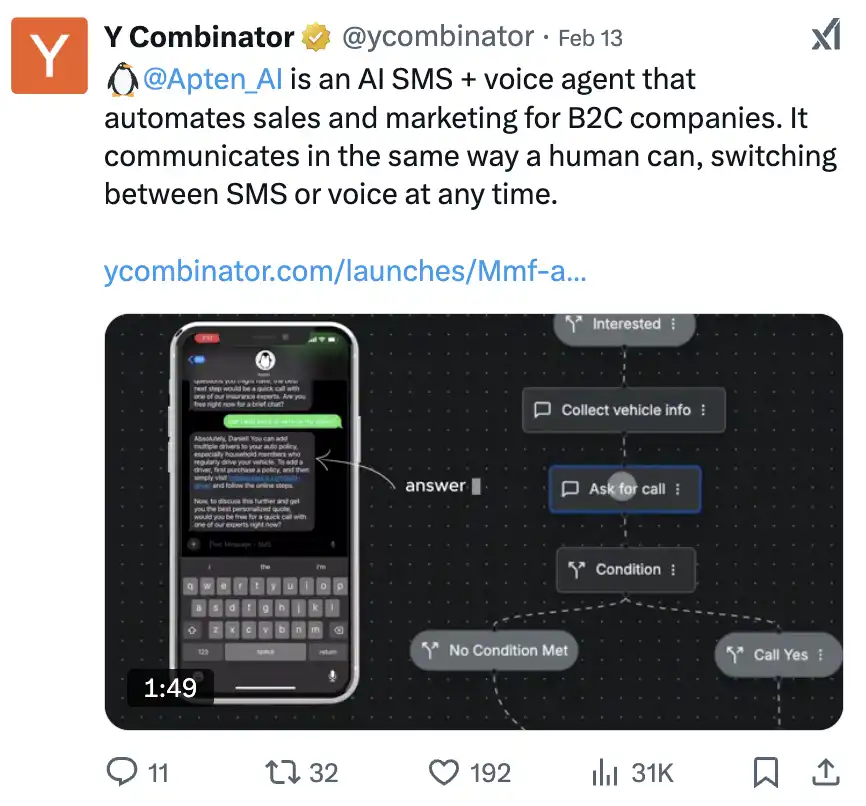
Bild_AI
Read architectural blueprints, extract material/spec data, and estimate costs based on collected data.
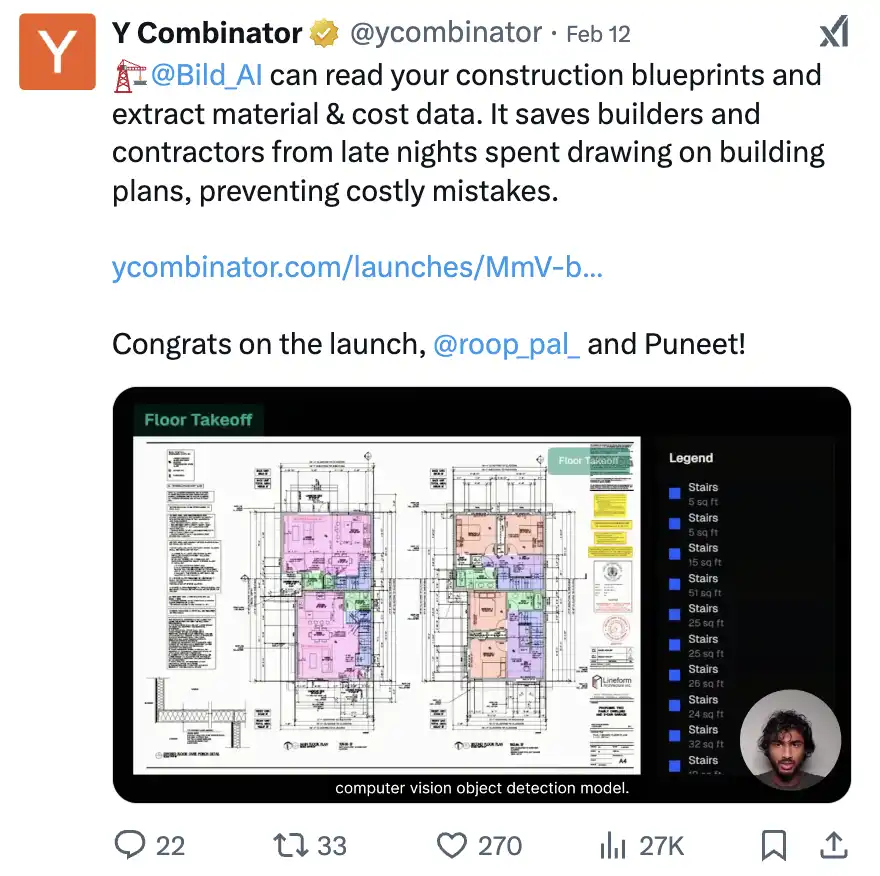
Casixty
Marketing Agent, identify popular topics on Reddit, automate responses, and increase brand engagement. Imagine this product is applied to CT!
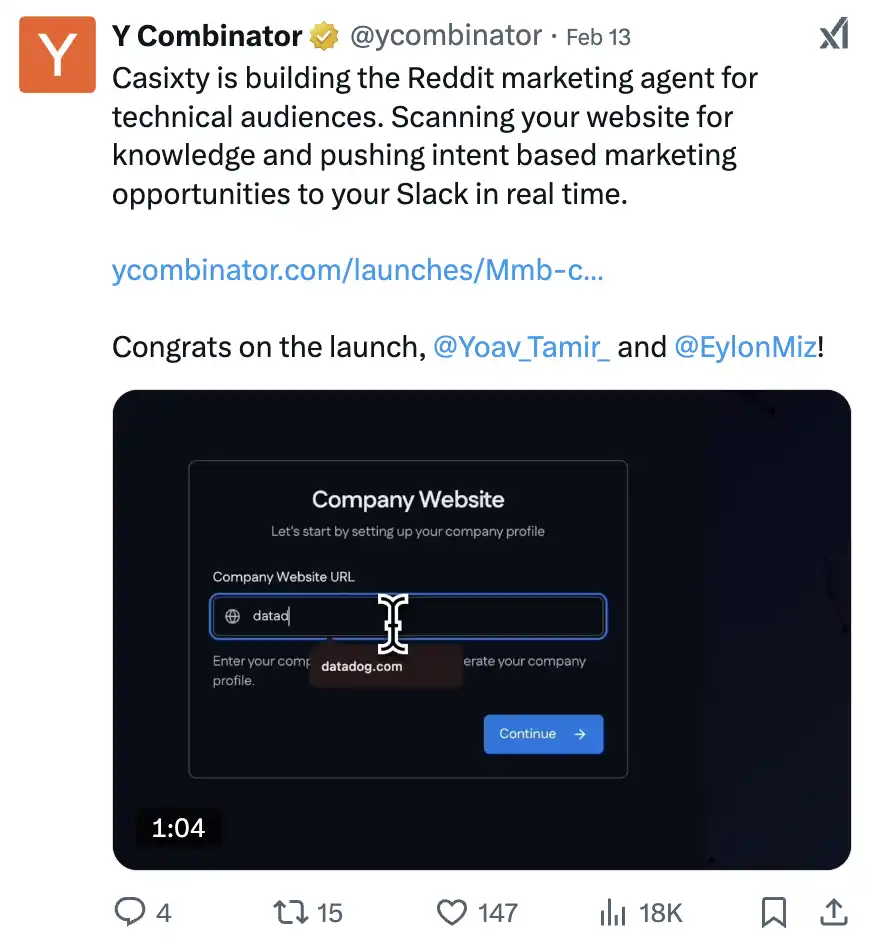
These examples show how AI Agent has transformed in traditional industries, automating manual tasks and optimizing workflows. While Web2 companies have quickly adopted AI-powered Agents, the Web3 sector has also begun to embrace the technology – but there is a key difference.
Web3 AI Agent not only focuses on operational efficiency, but also integrates blockchain technology to unlock new application scenarios.
Web3 AI Agent: More than just "nonsense literature" robots
A few months ago, most Web3 Agents were mere conversational bots on Twitter. However, the industry structure has changed significantly. These Agents are now integrating with a variety of tools and plugins to enable them to perform more complex operations.
sendaifun
Solana AI Agent suite that supports from basic token management to complex DeFi operations.
ai16z dao
Integrates over 100 plug-ins, from social media interactions to automated transactions and DeFi operations.
Co d3 xOrg, @Almanak__
No-code infrastructure that allows users to create autonomous transaction agents.
gizatechxyz
An independent DeFi assistant specially customized for investors.
DeFi is the largest industry in cryptocurrency (TVL is over US$100 billion), and the most influential crypto-native AI Agent application scenario belongs to DeFAI.
AI Agent in DeFi is more than just simplifying complex experiences through the NLP interface. They also use on-chain data to unlock new opportunities.
Blockchain provides a large amount of structured data - vouchers, transaction history, profit and loss, governance activities, lending models, etc. AI can process, analyze and extract insights from this data, automate workflows and enhance decision-making.
Web2 vertical Agent powered by encryption
We are also witnessing the integration of Web2 vertical agents with cryptographic native models. A typical example is the launch of virtuals_io on Solana.
_PerspectiveAI
AI-driven fact-checking, continuous improvement through community feedback.
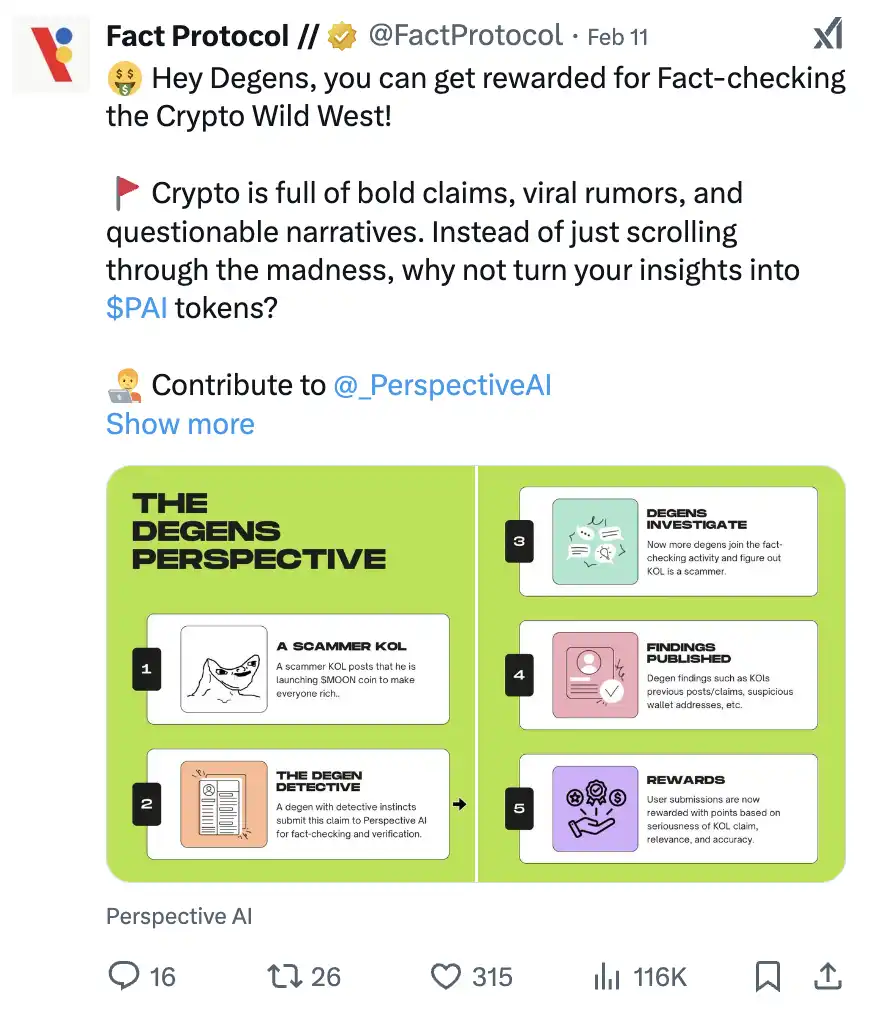
Roboagent 69
Act as a personal assistant, book flights, taxis, buy groceries, and arrange meetings.
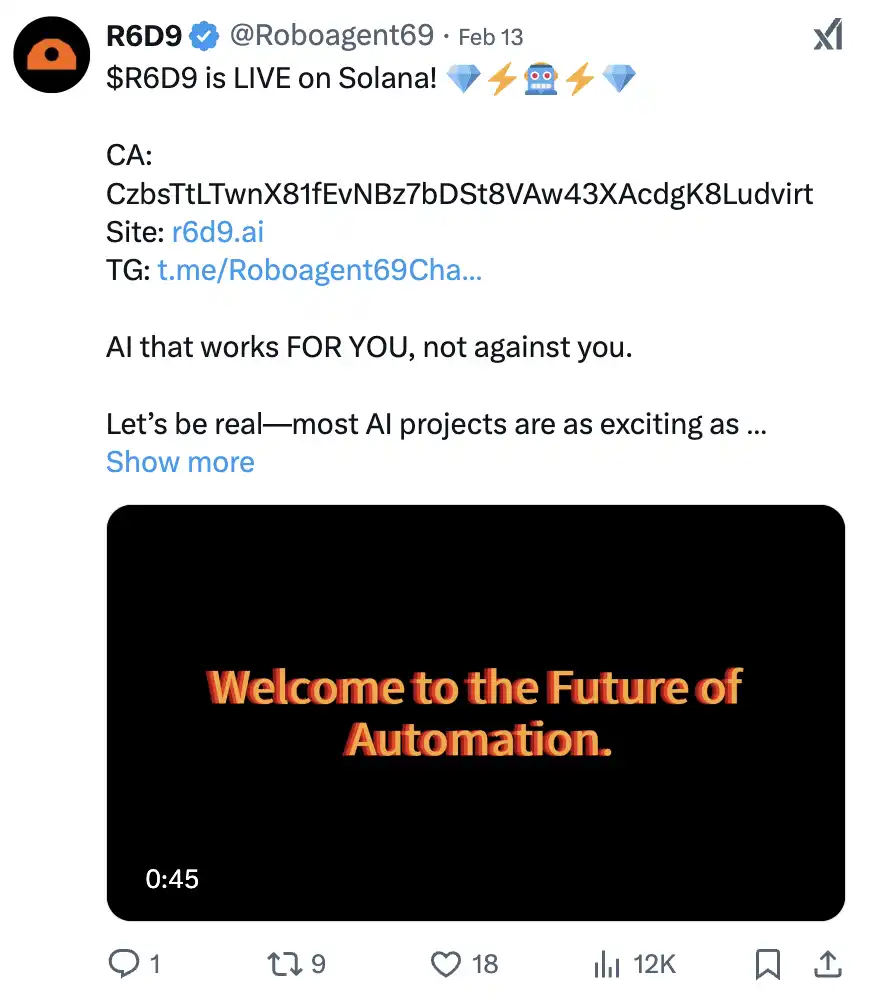
HeyTracyAI
AI-powered sports reviews and analysis, starting in the NBA.
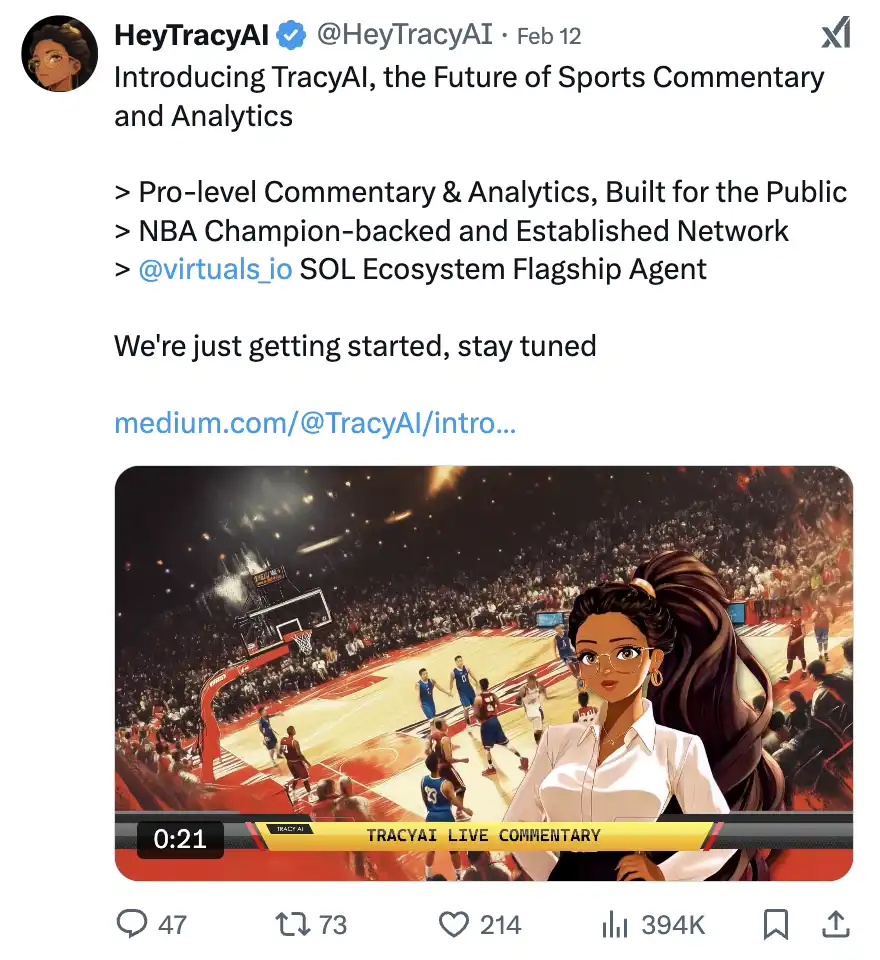
Unlike the SaaS model, these agents usually rely on token gating mechanisms, where users must stake or hold a certain amount of tokens to gain advanced permissions while maintaining free basic hierarchy access. Revenue is generated through token transaction fees and API usage fees.
Can the Web3 AI Agent compete with Web2 startups?
In the short term, the Web3 team has challenges finding product-market fits and achieving meaningful adoption. They need at least $1 million to $2 million in annualized recurring revenue to compete effectively. However, in the medium and long term, the Web3 model has inherent advantages:
Community-driven growth driven by token incentives and alignment.
Global liquidity and accessibility, decentralized and unmanaged platforms eliminate barriers to adoption.
In addition, the rise of DeepSeek and the interest of Web2 AI talents in open source AI have further accelerated the synergy between encryption and AI.
Key application scenarios for encrypting native AI Agent
DeFAI – Abstraction layer, automated transaction agent, and pledge/lending/borrowing solutions serve as the front end of DeFi infrastructure while improving the efficiency of DeFi products.
Research and Inference Agent – AI-powered research copilot, analyzing data, removing noise, and generating actionable insights. My favorite thing lately is the security agent, such as:
@soleng_agent – Analyze the DevRel Agent for GitHub repository.
@CertaiK_Agent – AI-based audit service to identify potential threats (the Agent rating system will be launched soon).
Data-driven AI Agent – Drive autonomous decision-making and execution using on-chain data and social data.
These three fields represent the most promising application directions of crypto-native AI Agent.
in conclusion
The market has been integrated for more than a month, and altcoins and Agent-related tokens have experienced a significant pullback. However, we are approaching a stage where the fundamentals of the tokens become clearer.
Web2 Vertical Agent has proven its value, and many companies are willing to pay a considerable fee to enable AI-driven automation. Meanwhile, Web3 vertical Agent is still in its early stages, but its potential is huge. By combining token-based incentives, decentralized access and deep integration with blockchain data, Web3 AI Agent has the opportunity to surpass its peers in Web2.
The core question remains: Will the Web3 vertical agent reach the adoption level comparable to Web2, or will it redefine the entire industry structure by leveraging the advantages of blockchain natively?
As vertical AI Agents in Web2 and Web3 continue to evolve, the boundaries between them may become blurred. Teams that successfully integrate the best features of both—leverage the efficiency of AI and the decentralization of blockchain—may shape automation and intelligence in the next generation of digital economy.

